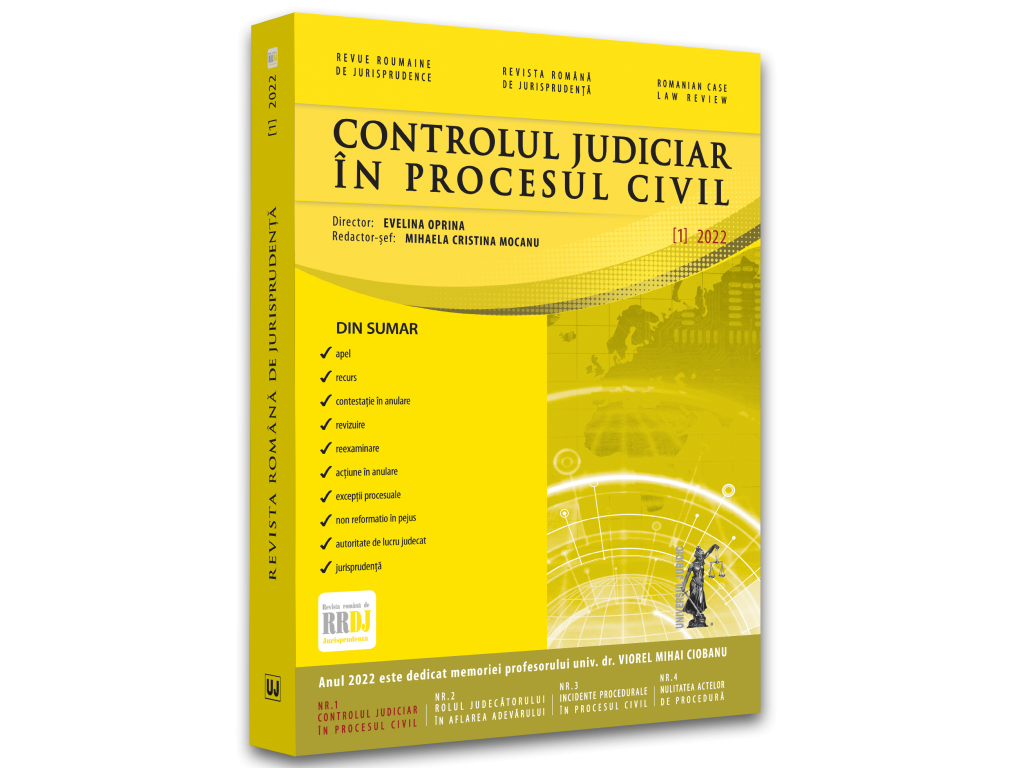Final judgment held to be incompatible with European Union law. Claim for revision of such a judgment. Principles of equivalence and effectiveness. Principle of legal certainty
JURISPRUDENŢĂ COMENTATĂ ŞI ADNOTATĂ
Abstract
The ground for revision governed by Article 21 of Law 554/2004 concerns violation of the principle of priority of EU law but this general wording must be correlated with the essential elements of the challenge. Review is, in national law, an extraordinary means of challenge of retraction, and not of reformation, and does not imply judicial review, but seeks to trigger a new trial, based on elements which could not form or did not form the subject matter of the trial which led to the judgment now under appeal.
This challenge could only be admissible if the second appeal court whose decision is subject to review found infringements of Community law. The application of the principle of priority of Community law, following Romania's accession to the European Union, is conditional on the existence of an incompatibility between national and Community rules. The way in which the review is regulated must be seen in the light of the principle of res judicata and the principle of legal certainty, from which the national legislature intended to derogate in so far as the court did not address the relevant rules of Union law.
It is not necessary for the party to have pleaded in the course of the proceedings the infringement o protected by European law, even if it did not refer to the incompatibility of the national rule with European law; the court must apply the law with which it is familiar, including European law and the interpretative judgments of the CJEU, which are binding on the courts of the Member States and enjoy priority in application under Article 148(2) of the Constitution.








